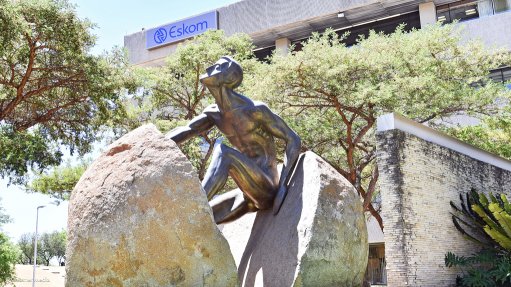
Photo by: Creamer Media's Donna Slater
Debt-laden State-owned power utility Eskom confirmed on Thursday that it would be offering senior employees voluntary separation packages (VSP) during March and April in an effort to lower overhead costs.
It reiterated, however, that it had no intention of implementing a forced retrenchments programme.
Eskom said in a statement that it would spend R400-million to cut overhead costs, which would be recouped through savings within a year.
“The purpose of the separation process is to rationalise management layers, which will lead to an efficiently run company,” Eskom said.
It stressed that the VSP excluded workers at the lower levels, or in nonmanagerial positions.
“Eskom will ensure that no critical skills will be lost as a result of the programme, and management will take every precaution to ensure that the VSP process caters to the best interests of Eskom.”
The utility is widely viewed as being overstaffed, a perception amplified by a 2016 World Bank report, which argued that, instead of its current headcount of above 42 000, the utility should be employing less than 15 000 people.
In response, Eskom has argued that the World Bank’s figure is based on an inaccurate benchmark calculation, which assumed Eskom’s transmission and distribution network to be only 77 811 km in 2015, whereas its actual network comprised 368 331 km in that year.
In a voice note released with the statement, Eskom spokesperson Sikonathi Mantshantsha underlined that no "general worker" would be affected by the utility’s move to reduce its managerial headcount.
CEO Andre de Ruyter had also stressed on several occasions that he fully accepted the shareholder’s stipulation that there be no forced retrenchments as the utility sought to recover operationally and address an unsustainable financial position, which was being exacerbated by a debt of more than R450-billion that the utility could not currently fund.